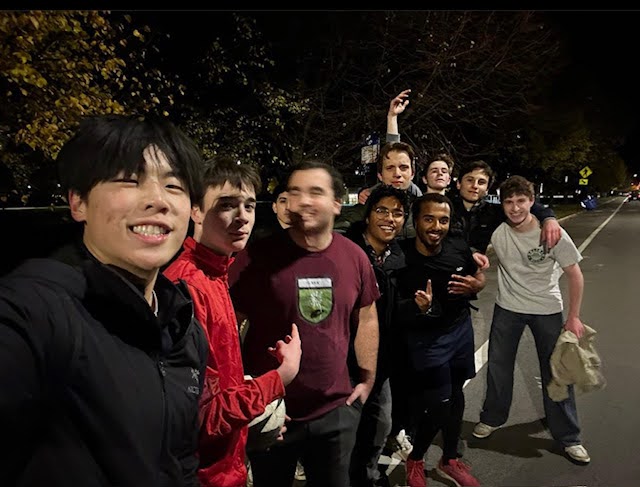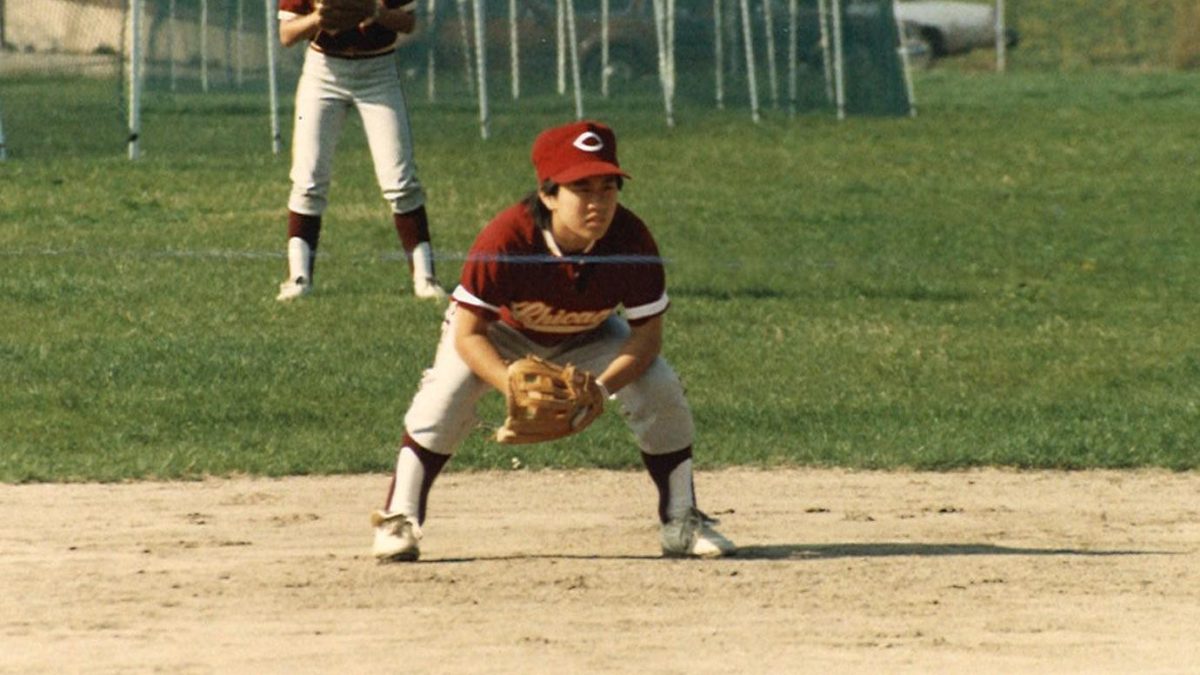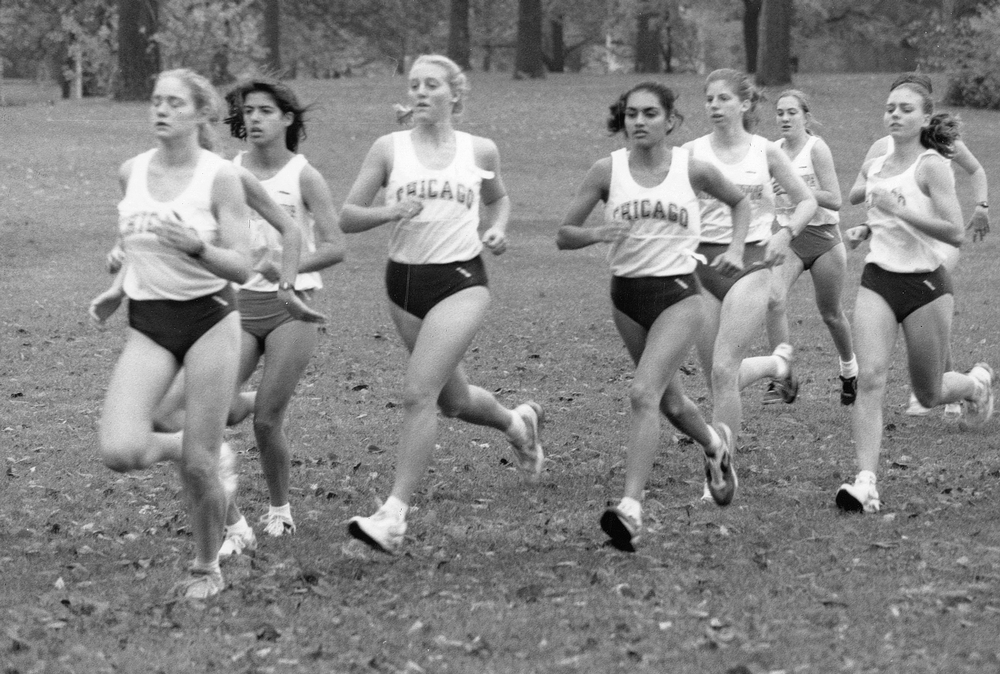When Nofi Mojidi arrived on campus as a first-year in September 2004, the women’s basketball team was coming off a 10–15 season, during which it finished next to last in the UAA. That was the third losing season in a row for a program that hadn’t made the postseason in a decade and hadn’t won a share of the conference title since the late 1980s.
In case that wasn’t enough, at the team’s first meeting that fall, then–head coach Jennifer Kroll announced that she was resigning, meaning current–head coach Aaron Roussell had to take over as interim coach just before the season began. Roussell himself had only arrived at Chicago a few weeks prior.
The chance to take on such a challenge, though, was exactly what attracted Mojidi to Chicago.
“I knew I was joining a program where we’d have to build the team from the ground up, because we were, in terms of record, seven out of eight,” Mojidi said, “so that attracted me, knowing I could come here and make an immediate difference, an immediate impact.”
Four years later, it’s probably fair to say that Mojidi made an impact. She was named to the All–UAA teams every year—twice to the first team—and finished second on Chicago’s all-time points list, second in field goals, and second in steals. The team had a winning record for all four of her seasons and, this winter, won the conference outright before making a run to the Sweet 16 of the NCAAs.
But life at Chicago wasn’t all basketball for Mojidi. She also ran sprints for the track and field team, and holds or held school records in the 100 meters, 200 meters, 400-meter splits, 4×100 meters, 4×200 meters, and 4×400 meters. All told, an impressive career for someone who wasn’t even sure she wanted to be a Maroon.
Mojidi, who grew up in Silver Spring, MD, started getting recruiting letters from the school while still an underclassman in high school. After a knee injury junior year derailed her plans to play DI, Mojidi got out her old letters from Chicago and started considering the school. Her mother, who had applied to the College herself, encouraged Mojidi, but the school didn’t click for her right away.
“My first two visits, it was rainy, cold; I didn’t really see anyone on campus. There was that U of C mentality in full swing,” Mojidi said.
But on the third visit, the school worked its charm.
“It was bright, sunny, everybody was out, and to see that atmosphere let me know that I could probably survive on a campus like this,” Mojidi said.
Once she arrived, Mojidi didn’t waste any time establishing herself as a diaper-dandy. Starting all 25 games her first year, she was the team’s third-leading scorer, putting up almost 12 points a game.
“She brought an exciting style of play,” Roussell said. “She brought a sense of flash to our team and to our league.”
Usually the fastest player on the court, Mojidi could often be seen pushing the ball up court, sprinting on fast breaks, or weaving around defenders in the lane. And even though her shots weren’t always pretty, she had a nose for scoring and a knack for getting improbable looks to drop.
Even this year, after undergoing knee surgery in the off-season, Mojidi regularly created fast breaks and, while dribbling, easily outran defenders.
“When I get the ball I have a scorer’s mentality,” Mojidi said. “I know something needs to get done in terms of making things happen. So whenever I go into the game, [Coach Roussell] will look at me on the sideline and say, ‘All right, time to make things happen.’”
Mojidi came to Chicago with that speed and flash, but during her college career, she developed other talents to complement her natural ability.
“Her first year she was a phenomenal athlete,” Roussell said. “Over time, she really honed her basketball skills and got to be more fundamentally sound.”
Those improvements started to show themselves on the court at Ratner. Mojidi became one of the team’s top outside threats and posted one of the UAA’s top field-goal percentages her final two years.
And the “oohs” and “ahhs” Mojidi created here started getting attention elsewhere. In April 2007, Sports Illustrated featured Mojidi in its “Faces in the Crowd” column, a regular feature on lower-profile athletes.
The Nigerian basketball team took notice, as well. Mojidi moved to the United States from the country when she was young but is still a citizen. When the national team heard about her success, she was invited to try out for Nigeria’s Olympic squad.
Unfortunately, a nagging knee injury prevented Mojidi from completing the tryouts. She toughed it out during her third year, but the injury finally caught up with her, and Mojidi had to have surgery.
After the surgery, Mojidi was told she would have to miss the first couple of months of this basketball season.
Sitting on a bench would have been a trial for the player whom fourth-year guard Lori Tanaka said “never quits no matter what the circumstances.”
“I once remember her at Wash U, hunched over a garbage can during the game and still went out and competed,” Tanaka said.
So when the Maroons opened their 2007–2008 campaign at home against Concordia, it was no surprise to see Mojidi in the starting lineup.
Months later, after a 22-win season—one of the best in program history—Mojidi is moving on but staying close by. This summer, she’ll start working downtown for Northwestern Mutual Financial. Her time as a Maroon, as well as all she and her class did for the basketball program won’t be far from her mind.
“This is something that will be talked about for years and years to come,” Mojidi said, “and to know that I was a part of that, that changing the swing of things, that really means a lot.”







